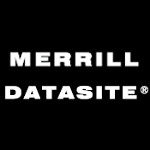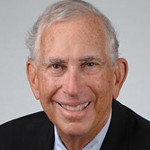MIAMI – The general counsel of Stiles, a developer in South Florida and elsewhere, will return to the private practice of law by joining Greenberg Traurig’s Fort Lauderdale office. Denny O’Shea, the incoming Fort Lauderdale Downtown Development Authority Chairman, will serve as chair of the firm’s Real Estate Development & Land Use Practice in Broward and Palm Beach counties. He is set to start in early October.
“When I wanted to get into the real estate development business in this region, I chose the best, with a great team culture and extraordinary leader in Terry Stiles. I of course know many law firms in the region from decades of working here and when I decided to now spend the rest of my career practicing law, I only turned to one firm, the best, Greenberg Traurig,” said O’Shea in a release.
“We recently decided to expand our leadership structure and I will become Executive Chair of the firm. While that job will involve overall strategy, international matters and shareholder compensation, among other things, I also intend to use this unique time in the Broward and Palm Beach markets to get back to my roots in local real estate development. When Denny called, it took me about 5 minutes to get incredibly excited about what we and the balance of our great team can now do together as we grow and area development heads north from Miami: his combination of real world experience, leadership talent and legal and business acumen is unmatched in this market, and the trust and friendship he engenders in literally everyone who knows him, are what make Denny a special guy I have long called my friend and now will be proud to call my partner,” said Richard A. Rosenbaum, Greenberg Traurig Chief Executive Officer. Rosenbaum has worked closely with O’Shea for over 25 years and spoke to his remarkable professionalism, integrity and character.
The release continues:
“Greenberg Traurig is a place I know well, and there is no one I trust more as a leader and friend than Richard Rosenbaum, who also understands the unique value we can deliver together in today’s market. We bring deep local knowledge and relationships built over many years as well as a collaborative firm’s network and experience in all the key US and global markets so important to this region: there is no other firm that offers this combination in Ft. Lauderdale and Palm Beach. And at this stage of my life, I frankly find Richard and Greenberg Traurig refreshingly ‘old school’: when he shakes your hand, you can bank it, the bureaucracy is virtually nonexistent, the focus is on the client, and the two of us have understood this real estate market for the last three decades,” said O’Shea.
O’Shea has been active in South Florida’s development community for 37 years, beginning his career in construction and developmental law. O’Shea has also served as Chair of the Economic Development Council of Broward County; the City of Ft. Lauderdale Unsafe Structures Board; and the Downtown Council of the Chamber of Commerce. As General Counsel for Stiles, O’Shea oversaw a staff of project managers and support personnel for the development of office, industrial and retail projects. He was responsible for project conceptualization, financial analysis, governmental approvals, architectural and construction coordination, and tenant lease up.
During his tenure at Stiles, O’Shea also previously served as the head of development. Before joining Stiles, a longtime firm client, in 1996, O’Shea was vice president of development for Broward County’s proposed Blockbuster Park development, working first for Wayne Huizinga, and then for Viacom, where he was responsible for selling the properties. Previously, he had been a partner in a well-respected Broward County real estate and land use law firm, and then became the head of development of the Florida division of what was then the largest homebuilder in the United States.
Terry Stiles, Chairman & Chief Executive Officer of Stiles, said, “When it comes to judgment, integrity, and trust, there is no one better than Denny O’Shea, with whom I have worked for a long time. I am in full agreement with his choice of firm for this next phase of his career and look forward to continuing to work with him.”
A Fort Lauderdale native, O’Shea studied economics at Harvard and also is a graduate of the University of Florida School of Law.
About Greenberg Traurig, LLP
Greenberg Traurig, LLP is an international, multi-practice law firm with approximately 1800 attorneys serving clients from 37 offices in the United States, Latin America, Europe, Asia, and the Middle East. The firm is among the 2015 BTI Brand Elite and among the most “Tech Savvy.” It was on the 2013-2015 BTI Client Service 30 listings of firms “most recognized by clients for providing excellent client service,” and one of the 2014 BTI Client Relationship Scorecard “Power Elite,” based on the nature and strength of its client relationships.
 Merrill DataSite is offering a complimentary evaluation tool that addresses the challenges faced in the ever-changing world of corporation compliance. This tool provide a process for evaluating compliance challenges and a method for considering solutions.
Merrill DataSite is offering a complimentary evaluation tool that addresses the challenges faced in the ever-changing world of corporation compliance. This tool provide a process for evaluating compliance challenges and a method for considering solutions. The national law firm of
The national law firm of  In the post-Enron and post-financial crisis era, anti-corruption compliance programs have been a key focus for boards of directors, audit committees and senior management of many multi-national companies, writes Arkady Bukh of New York’s
In the post-Enron and post-financial crisis era, anti-corruption compliance programs have been a key focus for boards of directors, audit committees and senior management of many multi-national companies, writes Arkady Bukh of New York’s